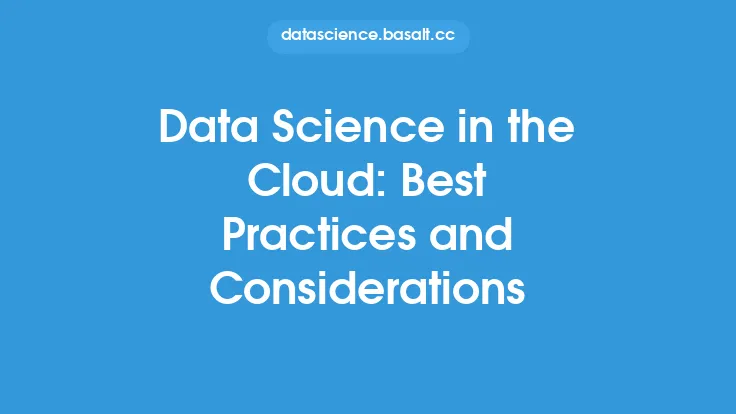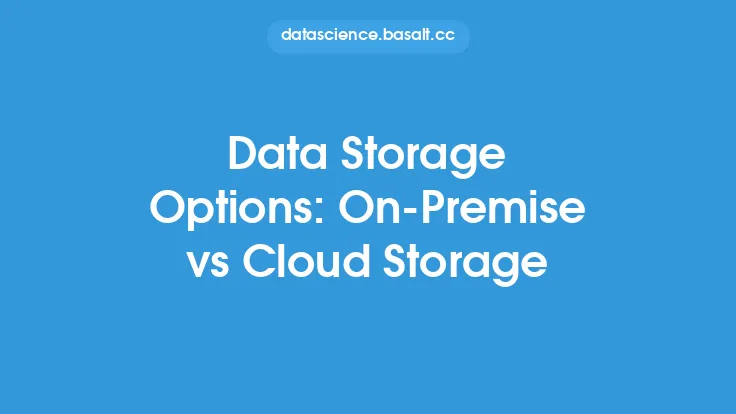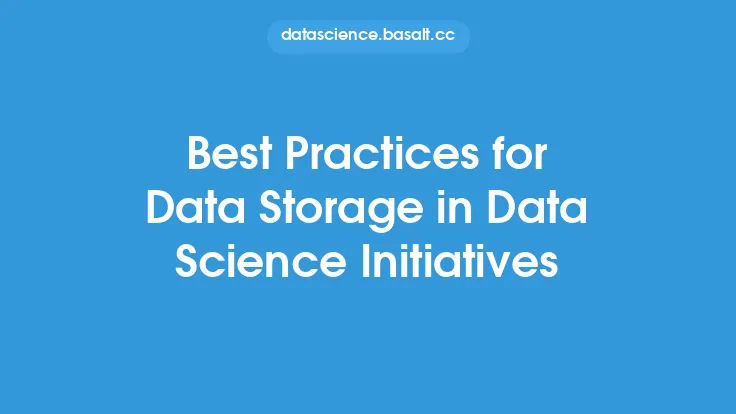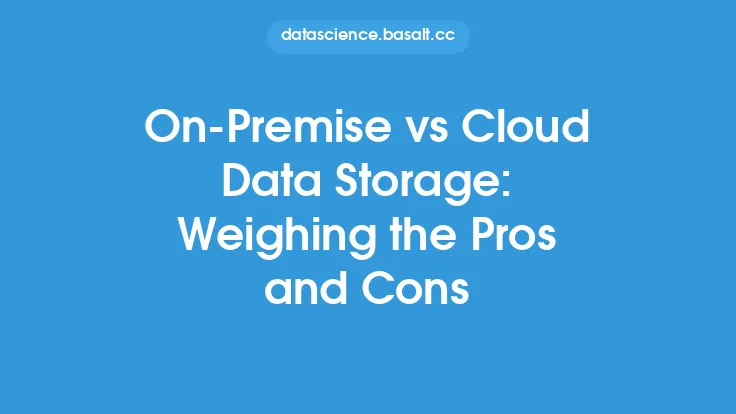As data science continues to evolve and play a crucial role in driving business decisions, the need for efficient and scalable data storage solutions has become increasingly important. Cloud-based data storage options have emerged as a popular choice for data science applications, offering a range of benefits including scalability, flexibility, and cost-effectiveness. However, with so many cloud-based data storage options available, evaluating the right solution for data science applications can be a daunting task.
Introduction to Cloud-Based Data Storage
Cloud-based data storage refers to the practice of storing and managing data in a cloud computing environment. This approach allows data to be stored, processed, and retrieved over the internet, eliminating the need for on-premise infrastructure and maintenance. Cloud-based data storage options can be categorized into several types, including object storage, block storage, and file storage. Object storage is ideal for storing large amounts of unstructured data, such as images and videos, while block storage is better suited for storing structured data, such as databases and files. File storage, on the other hand, is designed for storing and sharing files, such as documents and spreadsheets.
Key Considerations for Evaluating Cloud-Based Data Storage Options
When evaluating cloud-based data storage options for data science applications, there are several key considerations to keep in mind. These include scalability, performance, security, and cost. Scalability is critical for data science applications, as it allows for the storage and processing of large amounts of data. Performance is also important, as it directly impacts the speed and efficiency of data processing and analysis. Security is a top priority, as data science applications often involve sensitive and confidential data. Finally, cost is an important consideration, as cloud-based data storage options can vary significantly in terms of pricing and cost structures.
Cloud-Based Data Storage Options for Data Science
Several cloud-based data storage options are available for data science applications, including Amazon S3, Google Cloud Storage, Microsoft Azure Blob Storage, and IBM Cloud Object Storage. Amazon S3 is a popular choice for data science applications, offering a highly scalable and durable object storage solution. Google Cloud Storage is another popular option, offering a range of storage classes and pricing options. Microsoft Azure Blob Storage is a highly scalable and secure object storage solution, while IBM Cloud Object Storage offers a range of storage options and pricing plans.
Evaluating Cloud-Based Data Storage Options for Data Science
Evaluating cloud-based data storage options for data science applications requires a thorough analysis of several key factors, including data volume, data type, and data processing requirements. Data volume is an important consideration, as it directly impacts the scalability and performance of the storage solution. Data type is also important, as different types of data require different storage solutions. For example, structured data may require a relational database, while unstructured data may require an object storage solution. Data processing requirements are also critical, as they directly impact the performance and scalability of the storage solution.
Security and Compliance Considerations
Security and compliance are critical considerations when evaluating cloud-based data storage options for data science applications. Data science applications often involve sensitive and confidential data, requiring robust security and compliance measures. Cloud-based data storage options must provide robust security features, such as encryption, access controls, and auditing. Compliance is also important, as data science applications must comply with relevant regulations and standards, such as GDPR and HIPAA.
Best Practices for Evaluating Cloud-Based Data Storage Options
Several best practices can help evaluate cloud-based data storage options for data science applications. These include defining clear requirements, evaluating scalability and performance, assessing security and compliance, and comparing pricing and cost structures. Defining clear requirements is critical, as it helps to identify the right storage solution for the application. Evaluating scalability and performance is also important, as it directly impacts the efficiency and effectiveness of the storage solution. Assessing security and compliance is critical, as it ensures the protection and integrity of sensitive and confidential data. Finally, comparing pricing and cost structures is important, as it helps to identify the most cost-effective storage solution.
Conclusion
Evaluating cloud-based data storage options for data science applications requires a thorough analysis of several key factors, including scalability, performance, security, and cost. By considering these factors and following best practices, data science teams can identify the right cloud-based data storage solution for their applications, ensuring efficient and scalable data storage and processing. As data science continues to evolve and play a critical role in driving business decisions, the importance of cloud-based data storage options will only continue to grow, making it essential to evaluate and select the right storage solution for data science applications.





